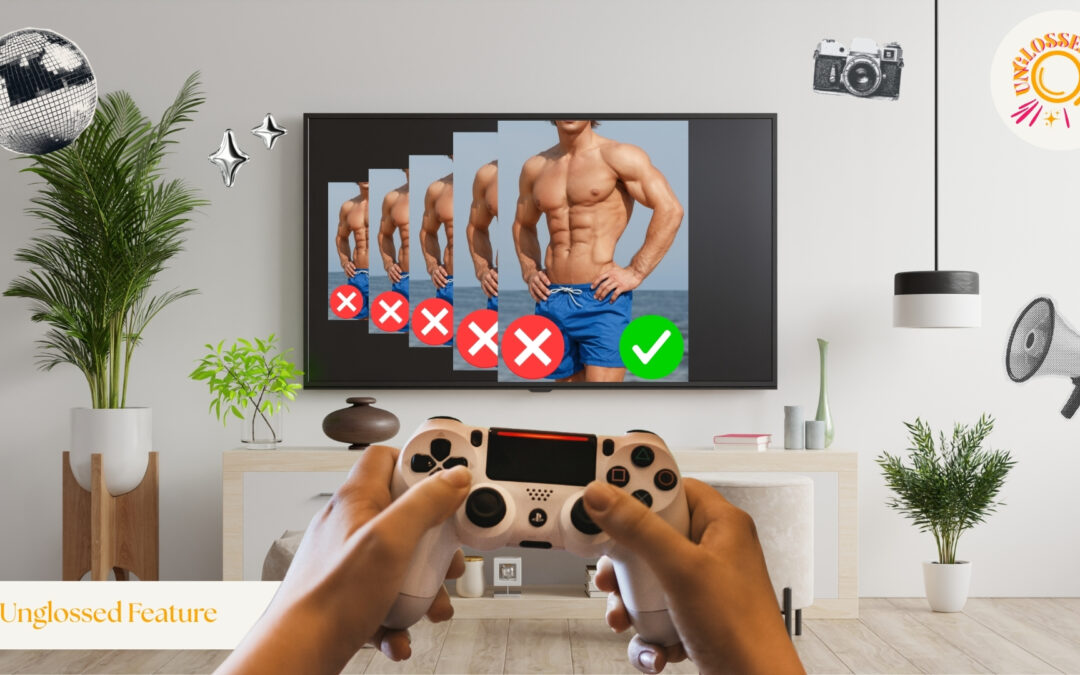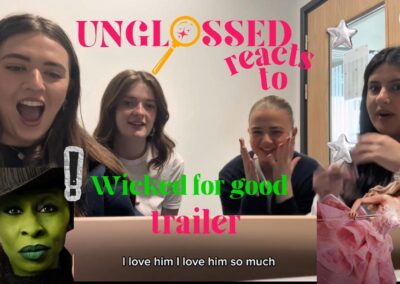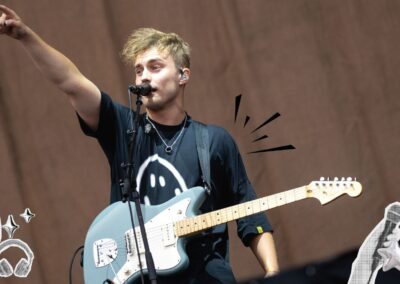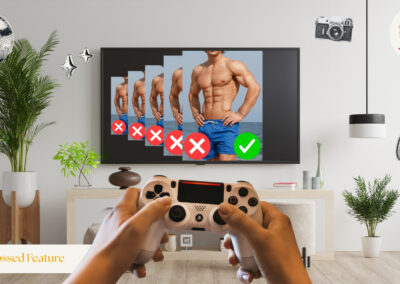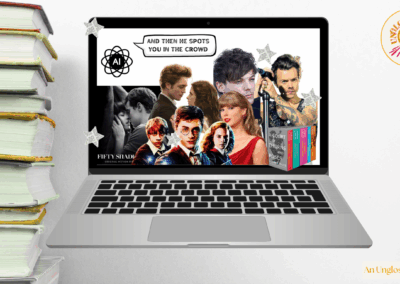Do you have a relationship with someone you’ve never met? These through-the-screen parasocial
relationships are constantly on the rise, and with celebrities and influencers becoming more
accessible, where do we draw the line between follower and fanatic?
You don’t know them, but it feels like you do. You’ve followed them online, studied their
interests, memorised their pet peeves, and if they go through a breakup, your chest tightens
as if your heart is breaking too. When they don’t post for a week, you feel abandoned,
refreshing their feed, circling back on reasons they’ve disappeared. You’re attached to
someone whom you’ve never met.
This is a parasocial relationship, the modern love affair with someone who doesn’t even
know you exist.
Parasocial relationships, a term first coined in the 1950s, describes one-sided bonds with
media figures, despite no real-life interaction. In today’s media landscape, fans are
encouraged not just to follow their idols online, but to form an emotional attachment too.
Obsessing over celebrities is no new phenomenon. Take Beatlemania, for example, a frenzy
in the 1960s over the renowned boy band ‘The Beatles’, where their fans, particularly young
girls, poured themselves into idolisation, showcasing how consumed fans can become when
infatuated with a celebrity figure.
Over time, fan culture developed into more than owning a poster of your favourite singer on
your bedroom wall; it has become a cult-like, zealous devotion of a parasocial intimacy.
“Followers who develop parasocial relationships with influencers feel as though they know
the influencer on an intimate level,” explains Hayley Cocker, Senior Lecturer in Marketing at
Lancaster University Management School, whose recent work investigates the psychology
behind these online connections. “But these relationships are one-sided and non-reciprocal;
it’s an illusion of intimacy.”
Social media has made these relationships more susceptible to society. YouTubers share
teary, heart-wrenching confessionals. TikTokers post ‘get ready with me’ videos, inviting you
into their deepest secrets. Instagram lives keep you glued 24/7. These celebrities and
influencers mirror the comfort of friendship, which can cloud the boundary between creator
and companion.
A study by the University of Essex found that 52% of people reported having a strong
parasocial relationship, and 36% felt close to a YouTuber, highlighting how common these
emotional connections form with online personalities.
Most notably, when rumours swirled about Molly-Mae Hague and Tommy Fury breaking up,
fans reacted as though their own relationship was ending. Comments flooded in, full of
heartbreak and betrayal: “I feel like my parents are divorcing”, wrote one follower.
Similarly, Taylor Swift’s fan base, the ‘Swifties’, expressed outrage at her absence from the
AMAs, protesting as if her withdrawal was a personal stab.
For celebrities, fan loyalty is powerful, but also perilously fragile.
“In our research, we found that parasocial relationships can turn sour, and quickly,” says
Hayley. “As influencers’ following grows, they often start sharing less of their private lives,
interact less, or begin to heavily moderate comments. Fans feel ignored, even betrayed.”
We’ve all seen it: hearts in the comments turn to hate. Former fans complain that
influencers have ‘changed’ and ‘aren’t the same’. When that happens, admiration flips into
resentment.
Lola Bickle, a lifelong fan of musician Harry Styles, has followed his career since his One
Direction debut in 2010, creating fan accounts and owning many of his merchandise.
“I remember the transition into Harry switching into his solo career. During his time away
from music, I felt betrayed as a fan that he hadn’t been consistent in updating us or sharing
his next career moves,” Lola shared. “I thought he’d never return, and that hurt me. It felt as
if I had wasted my years dedicating myself to someone not worth it.”
In many ways, these feelings are deeply personal, at least for the fan: “Followers invest
emotionally in these relationships,” Hayley adds. “So, when they feel that intimacy has
eroded, the emotional backlash can be intense.”
There’s an uncomfortable irony at the heart of parasocial relationships: the same emotional
closeness that fuels influencer success can also lead to their downfall.
“Feelings of intimacy and closeness underpin influencers’ commercial success,” says Hayley.
“But when followers sense that the relationship has become more transactional, more paid ads,
less interaction, they can feel exploited.”
Take Alix Earle, dubbed the “It girl” of TikTok, Alix rose to fame due to her unfiltered
content, from breakups to hangovers. But it’s this perceived closeness that has turned into
serious commercial power. Labelled the “Alix Earle Effect,” her influence causes products to
sell out within hours of being mentioned. Alix isn’t just leveraging attention; she’s
monetising emotional proximity. Influencers don’t just invite parasocial bonds; they build
careers on them.
But if the fans notice their loyalty is being taken for granted, the backlash can be savage.
Cancel culture has become a tool for fan-driven accountability, and sometimes, total career
annihilation. Even the most dedicated supporters can quickly dispose of their idols.
Depending on how deep these connections go, fans can waiver their support.
“There’s never been a time I have seen my relationship with Harry as disposable as I do
think I am a true fan,” Lola said. “I’ve always felt a love for him, and it would take a lot for
me to turn on him, some fans easily can, so I think that makes me a more committed fan.”
Lola shares that as she’s gotten older, she understands the feeling of connection isn’t real. “I
understand that this relationship is one-sided, but I don’t think the love I have for him will
ever go away, despite never meeting him.”
Compared to the beginning of parasocial relationships, many influencers and celebs now
interact with fans, replying to comments, taking feedback, and even offering behind-the-
scenes access through subscriber platforms like Cameo or Patreon. In these spaces,
followers pay for personalised messages or content.
“In these cases, the power dynamics start to shift,” Hayley explains. “Audiences have more
control, and the relationship feels more reciprocal. It challenges the traditional definition of
a parasocial relationship.”
But this grey area can make things even murkier. When fans do get attention from creators,
emotional investment deepens, and so can a sense of entitlement. Why didn’t she like my
comment? Why hasn’t she replied to my DM? The relationship becomes transactional in
both directions, but only one party is getting paid.
“Followers often expect creators to sustain the level of intimacy they established early on,”
Hayley said, “When that shifts, some followers react negatively, and in extreme cases, this
can lead to harassment, doxxing, or stalking.”
As we see top creators competing for how genuine they can be, it can become not just
exhausting, but dangerous.
“Creators should create a level of intimacy they feel they can maintain long-term. That way,
followers’ expectations are more realistic, and they’re less likely to feel abandoned or
betrayed when the creator’s career takes off,” Hayley said.
Parasocial relationships are a lens into how we crave connection in an era defined by
distance. As influencers build empires on relatability and rawness, in return for fans’ loyalty,
the lines between celebrity and friend are blurred. What we’re witnessing isn’t just fandom,
it’s a new kind of companionship.
And while it’s easy to dismiss this as the price of pop culture, it’s worth asking, if parasocial
relationships are enough to sustain us, what happens to the relationships that actually require us to show up? And will we start to reject real relationships for satisfaction in a fake one?



